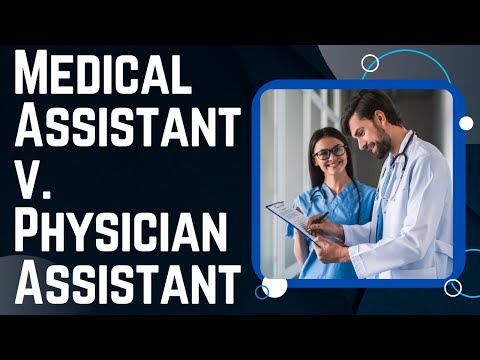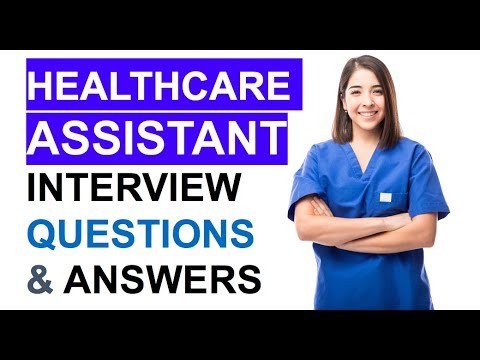What Kind of Medical Assistance is Needed for Down Syndrome?
Contents
Down syndrome is a chromosomal condition that can cause a variety of medical problems. People with Down syndrome need lifelong medical care and support.
Checkout this video:
Introduction
Down syndrome is a chromosomal condition that is associated with intellectual disability, delays in physical growth, and characteristic facial features. There is no cure for Down syndrome, but medical and educational intervention can significantly improve the quality of life for people with the condition. Early diagnosis and intervention is important in order to maximize the potential for development.
What is Down Syndrome?
Down syndrome is a genetic disorder caused by the presence of an extra chromosome 21. It is the most common chromosome abnormality, occurring in one out of every 800-1000 live births. The majority of cases are not hereditary, but occur as a spontaneous mutation during conception.
There are three types of Down syndrome, each with different effects on the individual:
-Trisomy 21: This is the most common type, accounting for 95% of all cases. It occurs when every cell in the body has three copies of chromosome 21 instead of the usual two copies.
-Mosiac Down syndrome: This type affects about 2% of individuals with Down syndrome. It occurs when there is a mixture of cells, some with the usual two copies of chromosome 21 and some with three copies.
-Translocation Down syndrome: This type accounts for about 3% of all Down syndrome cases. It occurs when part of chromosome 21 breaks off and attaches itself to another chromosome.
Causes of Down Syndrome
Down syndrome is a condition in which a person has an extra chromosome. This extra chromosome causes the person to have certain physical and mental characteristics. People with Down syndrome often have different shaped eyes, small ears, and a short neck. They may also have problems with their heart, intestines, and thyroid gland.
Down syndrome is caused by an error in cell division. This error can happen before or at the time of conception. It is more likely to happen if the mother is older when she becomes pregnant.
There are three types of Down syndrome:
-Trisomy 21: This is the most common type of Down syndrome. It happens when a person has three copies of chromosome 21 instead of two.
-Mosaic Down syndrome: This type of Down syndrome happens when there are two different types of cells in the body. Some cells have the normal two copies of chromosome 21, and other cells have three copies.
-Translocation Down syndrome: This type of Down syndrome happens when part of chromosome 21 breaks off and attaches to another chromosome during cell division.
Symptoms of Down Syndrome
Down syndrome is a chromosomal disorder that is associated with certain physical and mental health characteristics. The most common and well-known of these is Down syndrome, which is caused by the presence of an extra 21st chromosome. People with Down syndrome often have distinctive facial features, such as a flattened nose, small ears, and a protruding tongue. They are also at an increased risk for certain medical conditions, such as heart defects, leukemia, and gastrointestinal problems.
Diagnosis of Down Syndrome
Diagnosis of Down Syndrome
Most babies with Down syndrome are born to parents who are 20 to 40 years old. A woman’s age is the most significant risk factor for having a baby with Down syndrome. However, the risk of conceiving a child with Down syndrome increases as a woman gets older, especially after age 35.
There are two types of prenatal tests that can diagnose Down syndrome. The first is called screening, which can identify women at higher risk for having a baby with Down syndrome. These tests are noninvasive and can be done early in pregnancy. The second type of test is diagnostic, which can give a definite answer about whether or not the fetus has Down syndrome. These tests are invasive and carry a small risk for miscarriage.
Treatment of Down Syndrome
Though there is no cure for Down Syndrome, there are many treatments available that can greatly improve the quality of life for those with the condition. Early intervention and special education programs can help children with Down Syndrome develop important skills, and there are many therapies that can help manage associated medical conditions. Adults with Down Syndrome can live relatively healthy and independent lives with the help of supportive services and access to regular health care
Prevention of Down Syndrome
There is no known way to prevent Down syndrome. However, research shows that the chances of having a baby with Down syndrome increase as a woman gets older. So, women who are of advanced maternal age (35 years or older) may want to talk to their healthcare provider about their risk of having a baby with Down syndrome and whether genetic counseling or screenings, such as chorionic villus sampling or amniocentesis, are right for them.
Prognosis of Down Syndrome
Down syndrome is a condition in which a person has an extra chromosome. This results in physical and mental developmental delays and health problems However, people with Down syndrome can live happy, healthy and fulfilling lives with the right medical care and support.
Most babies with Down syndrome are born with congenital heart defects. These defects can be mild or severe, but they can be treated with surgery. Other common health problems associated with Down syndrome include hearing loss, vision problems, respiratory infections and thyroid conditions. People with Down syndrome are also at higher risk for Alzheimer’s disease and leukemia.
With early intervention and proper medical care, people with Down syndrome can lead happy, healthy lives well into adulthood.
Coping with Down Syndrome
Medical assistance for Down syndrome varies depending on the severity of the condition. In most cases, people with Down syndrome require lifelong care and support. Basic medical care may include regular checkups, hearing and vision tests, and vaccinations. People with Down syndrome may also need help managing certain health conditions such as heart defects, hearing loss, sleep apnea, and thyroid problems.
FAQs about Down Syndrome
1.What is Down syndrome?
Down syndrome is a genetic condition that occurs when a person has an extra copy of chromosome 21. This extra chromosome results in physical and intellectual disabilities. People with Down syndrome experience a wide range of abilities and disabilities. Some common features of Down syndrome include low muscle tone, small stature, and an upward slant to the eyes.
2.What causes Down syndrome?
Down syndrome is caused by a random error in cell division called nondisjunction. Nondisjunction results in an embryo with three copies of chromosome 21 instead of the usual two copies. This type of error occurs randomly and is not caused by anything the parents do or don’t do.
3.How often does Down syndrome occur?
Down syndrome occurs in about 1 in every 700 births worldwide. It is the most common genetic condition, affecting people of all races and ethnicities.
4.What are the chances of having a baby with Down syndrome?
The chances of having a baby with Down syndrome increase with the age of the mother, but anyone can have a child with this condition. About 1 in every 1,000 babies born to women under age 35 has Down syndrome. The risk increases to 1 in every 400 births for mothers aged 35-39 years old, and 1 in every 100 births for mothers 40 years old or older.
5.What are the symptoms of Down syndrome?
Symptoms can vary from mild to severe and can be different for each person with the condition. Common symptoms include: intellectual disability, delayed development milestones, low muscle tone, poor coordination, speech delays, hearing loss, vision problems, and heart defects. People with Down syndrome also have an increased risk for certain medical conditions such as Alzheimer’s disease, obesity, blood disorders, intestinal problems, and thyroid problems.
6 .How is Down Syndrome diagnosed?
There are several ways to diagnose Down Syndrome including: prenatal testing (amniocentesis or chorionic villus sampling), newborn screening tests ( heel prick test), physical examination (doctor looking for certain characteristics), or chromosome analysis (looking at chromosomes under a microscope). Prenatal testing is done before birth and can give parents information about whether or not their baby has Down Syndrome so they can make decisions about their pregnancy care and delivery plans. Newborn screening tests are done soon after birth and can help doctors identify babies who might have Down Syndrome so they can get early diagnosis and treatment if needed . A physical examination might be done if there are certain characteristics present at birth that are associated with Down Syndrome . Finally , a chromosome analysis might be done if there are changes in the structure or number of chromosomes which can be associated with conditions like down Syndrome .







